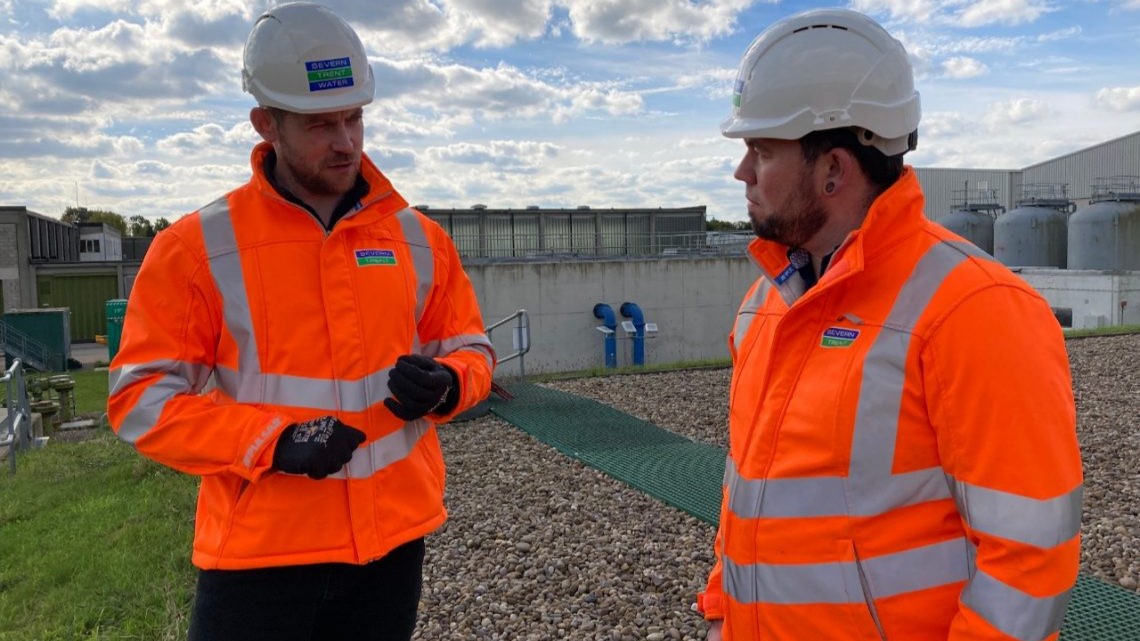Dr Adam Thompson, MP for Erewash, has visited the site of Severn Trent’s brand new £140m water treatment works at Church Wilne.
During his visit, Dr Thompson also learned more about how Severn Trent is using nature-based solutions to help pre-treat water at nearby Witches Oak Water.
Part of Severn Trent’s £566m Green Recovery Programme, the new treatment works will receive water from the River Trent that has been pre-treated by passing through 30 floating wetlands. The long roots of the plants that form the floating wetlands act as a natural pre-treatment filter, capturing many of the biological or man-made pollutants in the water.
This means that less energy and chemicals are needed to treat the water at the new Church Wilne works, making it more efficient and environmentally friendly.
The new Church Wilne treatment works is due to be fully operational by March 2025. Its increased capacity means that it will be able to supply an additional 89m litres of drinking water a day – enough to serve a city the size of Derby.
Dr Adam Thompson MP, said:
“Seeing firsthand the new treatment works and learning about how Severn Trent is using nature-based solutions to support its processes was truly fascinating.
“We’ve got some of the most amazing natural landscapes in Derbyshire and I know that river health is at the forefront of many of my constituents’ minds, so it’s heartening to see that Severn Trent is taking this matter seriously and investing in practical solutions.”
The Church Wilne treatment works have been designed with a specific focus on addressing some of the more recent challenges that have emerged, such as eliminating PFAS – or ‘forever chemicals’ – and removing microplastics.
Matthew Bingham, Delivery Business Lead at Severn Trent said:
“Our project at Church Wilne and Witches Oak is really unique and has been developed specifically to help us meet some new and emerging issues such as how to handle ‘forever chemicals’ and microplastics at the point of treatment.
“Alongside the inclusion of high-tech solutions in the works itself, we’re also looking to harness the power of nature to help us through the floating wetlands. By employing this combination of treatment methods and through the added capacity at the new Church Wilne treatment works, we’re confident that we’ll be able to meet both the current and future challenges.”



